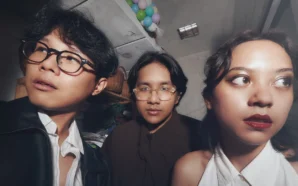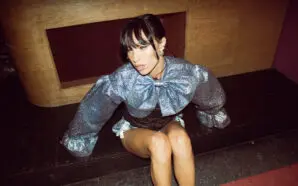Lucky for us, our new favorite bubblegrunge outfit (Apparently our favorite genre, according to Spotify.) is based right out of Fishtown! The band, who’ve already released two singles and are preparing to put out their debut EP at the end of the month, are comprised of five Millennials with day jobs — Nick Tuttle (guitar), Randy LoBasso (guitar), MaiAda Carpano (vocals), Tom Farnham (bass), and Oren Roth-Eisenberg (drums) — who are exploring their love of punk and indie rock on evenings and weekends (They’ve already played a handful of area shows, including a date at The Fire, which you can click a link to see, in part, below.) Quiet Time’s latest single, “scheherazade,” dropped two weeks ago, the follow-up to “shout out mrs. albertson,” whose official music video premiered in August. Quiet Time’s first-ever EP, everyone’s having more fun than me, is officially out Friday September 27th, and this summer I got a chance to chat with lead vocalist MaiAda Carpano about the roots of Quiet Time.
Izzy Cihak: How did you all initially come together and decide to start a band? I know at least some of you have kind of normal adult day jobs.
MaiAda Carpano: Yeah! We’re all very adult [laughs]. It started with me and my husband, Nick, during the pandemic. I’ve always loved music and liked the idea of writing music, but never got to the point where I could play an instrument. I was hearing about venues struggling and I got really emotional thinking about venues that I went to when I was a kid closing down. So, I just went to Nick, and was like, “Write something sad! I wanna make a sad song!” [laughs].
From there we started writing songs, and once vaccines came out and it was safe to meet up, we reached out to Oren. Oren and Nick have known each other since they were kids; their moms were like best friends [laughs]. We kept bugging him, because he had his drums in storage. He hadn’t played in years, and we were like, “Come on! Get the drums out! Let’s play together!” He finally was like, “Alright, let’s do it!” So, that’s how Oren came on.
We went through a couple iterations with a second guitarist and bassist, because it just didn’t work out for one reason or another. Oren had been doing bike advocacy work with Randy in the past. They literally ran into each other and Oren mentioned he was in a band, and Randy was like, “Oh yeah? You lookin’ for people?” And it was like, “Yeah!” So, he joined, and then it was kind of full circle with Tom, because during the pandemic I started streaming on Twitch and that’s how we met; we were kind of in the broader community of people who knew each other that way.
Izzy: We talked about this a little bit, but what is your personal background with music, whether professionally/officially, or just in terms of your history with music and even the kind of music that you’re doing?
MaiAda: In terms of playing music, I really don’t have a background at all, but music’s always been a really big part of my life. I was a really stereotypical teenager who found a way to express emotions and feel connections through music and through communities around music. In my early twenties, I was in North Carolina and I had a lot of friends who were playing in bands and I was always going to shows. For the longest time, my outlet was making mixtapes. I couldn’t play an instrument, so I would make thematic mixtapes around a different feeling or whatever. I would put them on cassette and make zines and stuff like that.
Izzy: Since this is a Philadelphia publication, I’m curious what are some of your favorite things about being here, both as a musician and just daily life?
MaiAda: Just to kind of put it in perspective, how I came to Philly and why I love it so much, I actually came here from San Diego. I met Nick, who’s from South Jersey but went to school at Drexel, and he would talk about Philly all the time, how great it was. And I would make fun of him, but then I came out here and I was like, “This is my vibe!” I was really struggling out on the West Coast. I didn’t know I was an East Coaster until I went to the West Coast. I was like, “I need to go back to the East Coast!”
From the moment I knew about Philly, I instantly vibed with it and connected with it. From my experiences, living in North Carolina, living in San Diego, I feel like North Carolina is a really suburban, small community, really close-knit music scene. If you were in that group, everybody knew each other and was really supportive, which was cool. And then San Diego is really expensive, really corporate. So, to come to Philly, that is a big city where you have more mixing of different people, but at the same time having that local feeling of having these actual grassroots, whether it’s businesses or arts or music, that’s really rare. You don’t find that in a lot of places.
Izzy: I know that you’re gearing up to release your EP. How was the process of writing and recording the EP?
MaiAda: We worked together with Kevin Folk, who has a studio called Warm Body, and it was awesome working with him. I thought it was a really cool process and experience, because for all of us except Tom, it was our first time recording. He was really hands on with giving us feedback and giving us ideas and helping our songs grow. Until then, we’d just kind of been practicing in the basement. We hadn’t really heard it back, except on voice memo recordings. We also worked with another friend of theirs, Mark Bancroft. That was big for me, too, because that was my first time with the melody and the vocals. I had just worked on it on my own, and no one else could even hear what I was singing in the basement. So, that was great. It definitely took longer than we expected.
Izzy: I know you don’t have an official release out yet, but what have been some of the highlights of the band so far? I know you have played some shows, I mean, not a ton of shows, but whether it be that or reactions your music’s gotten, or even if it’s just the experience of getting to know one another and working together in this context?
MaiAda: I think that it’s been really great playing shows together. Like you said, we haven’t played a ton of shows, but that’s definitely been something that everyone’s been really excited about. I feel like our energy and the performance piece is a big part of showcasing who we are… For me, honestly, writing the songs is my favorite part. More than everything else, I’ve always liked writing, and sometimes it’s the type of thing that it’s hard to find the outlet that you are able to get to a finished product or that you feel like you want to share it with people. So, getting to write the lyrics and get to work with others to make it bigger and make it something you can share has been really cool. The lyrics draw a lot from my life and my own experiences and that kind of thing… But it’s something I can’t do on my own, since I don’t play any of the instruments or anything. So, to then have each person bring their piece, in terms of adding to the emotion or adding to that story, is a really cool process. That’s my favorite part!
Izzy: That’s interesting, because I’ll talk to a lot of bands who have been doing it for like decades and they’ll be like, “We really only make music so that we can tour and play shows,” like it’s just an excuse…
MaiAda: It is funny, because I do feel like I’m the odd one out in the group. I think everyone likes writing the songs, but they’re all about performing and doing shows and all that. And it’s fun! I like it! I was a theatre kid, so I can perform! But the part that I get really excited about and the thing that makes me keep wanting to do it is the songwriting piece.
Izzy: I saw footage of you all at The Fire on your YouTube, and it is really an engaging, exciting performance! What does that draw inspiration from? I mean, you mentioned being into theatre, which I wasn’t aware of. Are there any performers that really inspire you or that you try to channel?
MaiAda: For sure! The combination that I don’t play an instrument… and I’m fine with my singing voice, but I don’t have this amazing, powerful voice that some people have. I feel like I’ve always drawn a ton of inspiration from the whole DIY ethos of twee subculture and pop punk and riot grrrl of just kind of being like, it’s not about the talent, it’s about what you put behind it. So, a lot of inspiration is from Kathleen Hanna, and then the lead singer of Surfbort (She’s crazy!), Amyl and the Sniffers, all of those punk girl singers. They’re insane! Their stage presence is amazing, so I’m definitely very influenced by them!
Izzy: I know that you’ve branded yourselves as bubblegrunge, which I totally love and I think it was my #1 Spotify last year.
MaiAda: That’s how I found out about it!
Izzy: Oh, okay! They give you weird things, like my #3 was like “countrygaze,” and I’m like, “Okay…”
MaiAda: You’re like, “That’s made up, but that’s awesome…”
Izzy: So, I’m curious, how do you define bubblegrunge, or what does that mean to you all?
MaiAda: I feel like if I don’t use the word bubblegrunge, it’s like, “Well, we’re like punky, emo-y, indie rock-ish, girl-fronted…” Because I feel like words like “punk” or “emo,” they’re such broad genres and there’re so many different places you can go, especially when you’re somebody that doesn’t listen to a lot of more underground music. It’s like, “Punk, but not what you’re thinking!” or “Emo, but not what you’re thinking!” I feel like there’s been this catch all with bubblegrunge that captures this more indie side to it. And when I think of bubblegrunge bands, I think of Remember Sports or Hop Along!
Izzy: What are your hopes and goals for the immediate future? How is the band wanting and planning to spend the rest of 2024 and the start of 2025?
MaiAda: The biggest thing coming up is that we’re releasing the EP. That’s super exciting. It’s called everyone’s having more fun than me. We are gonna be planning a release party around that and we’re hoping to start working towards getting it pressed on vinyl. Besides that, continuing to play shows. Part of what’s been really fun about doing shows is getting to meet other bands and other people playing music. Again, it’s kind of weird coming into a band and doing this for the first time in my thirties. It’s something that would be so completely different in my twenties, because that’s when I was going out all the time. So, trying to make friends and new relationships in your thirties is a different thing. Getting to have that be an opportunity to meet other people who have the same passions and are also making music has been something all of us are really excited about.
Izzy: Yeah, it’s funny because when people were asking me about you, I was like, “They’re all like my age and I think a lot of them are married and at least one has a kid.”
MaiAda: Yeah, we’re a dad band [laughs].
Izzy: Yeah, and, from what I know, not like career musicians… Which is such a cool thing!
MaiAda: Exactly! I feel like it takes the pressure off in that way. We’re all at a point in our lives where we have the time and space to devote to it. It’s truly just a thing we do because we enjoy it and it’s fun. Obviously, every band feels that way, but it’s not like we have to worry about the compensation piece at all… We already have the jobs! I’ve already done the full circle: idealist, making no money, to then selling out and getting a 9-5 or whatever, and now this is like the outlet.








